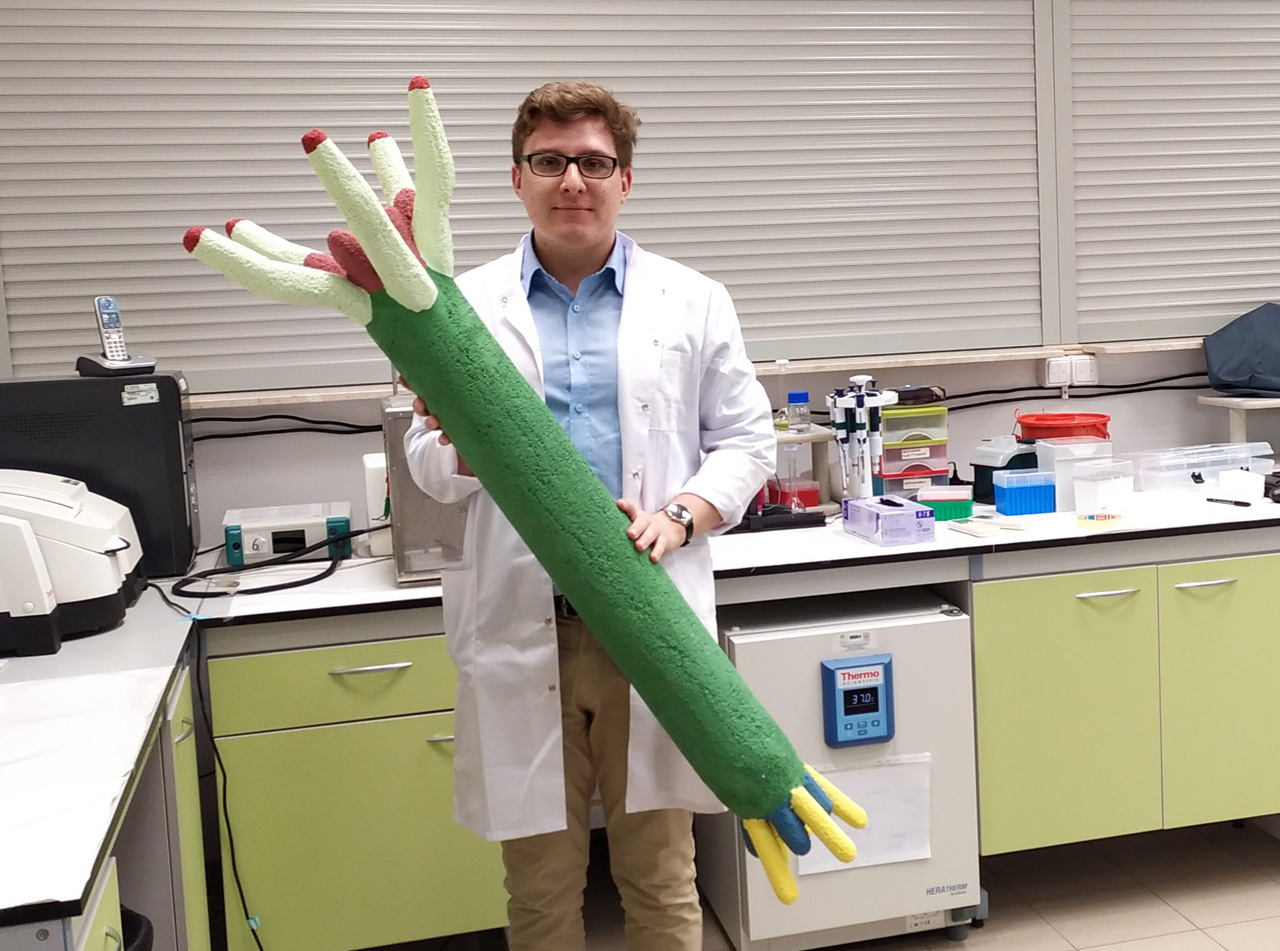Sensor for quick detection of myocardial infarction
 The idea of a young scientist from Poland was rewarded.
The idea of a young scientist from Poland was rewarded.
The student Sebastian Machera is developing technology that can help many patients while improving medical procedures. For his research he received an award in the prestigious EUCYS competition (for outstanding researchers under the age of 21). He is developing his project at the Institute of Physical Chemistry of the Polish Academy of Sciences (PAN).
Sebastian Machera decided at an early age to take a closer look at cardiovascular diseases. This clinical picture is one of the most common causes of premature death in most highly developed countries.
The young scientist wants to develop a sensor that can help diagnose people with a heart attack more quickly. His idea was recognized by the EUCYS jury. The researcher received first prize in the Polish edition of this prestigious competition. The laureate is studying at the Medical University of Warsaw and biotechnology at the Technical University of Warsaw.
Source (picture): Sebastian Machera with model M13 bacteriophage: Polish Academy of Sciences (PAN)
Interview with the winner
Polish Academy of Sciences: what about the award-winning project?
Sebastian Machera: It's about the development and manufacture of a sensor that detects troponin T. This is a protein that is released into the blood as a result of a heart attack. Testing for troponin T in the blood allows doctors to make a diagnosis and provide appropriate treatments.
Polish Academy of Sciences: How can you determine its content in the blood?
There are different viruses and bacteria in our intestines. There is a rod-shaped virus - bacteriophage M13. It infects the E.coli bacterium, which is responsible for breaking down the food we eat. It can also bind troponin T. I managed to isolate it. I used a technique that won the Nobel Prize in Chemistry in 2018. The more troponin T in a given sample, the more this protein binds the bacteriophages. This dependence can be observed by applying the sample to the electrode. You can see strong signals when troponin T levels rise.
Polish Academy of Sciences: why this interest?
I have been interested in chemistry since I was a child. But my adventure with it didn't start until high school - thanks to great teachers and an inspiring environment. Later, thanks to the National Children's Fund, I had the opportunity to get to know the laboratories of the Institute of Physical Chemistry of the Polish Academy of Sciences (IPC PAS) and the Faculty of Chemistry at the University of Warsaw. Thanks to the kindness of Dr. Katarzyna Szot-Karpińska from IPC PAS, I then completed two academic internships, during which I prepared my work for the EUCYS competition.
Polish Academy of Sciences: what are your plans?
I would like to develop diagnostic methods based on biochemical analyzes of blood and other body fluids to identify disease markers. I also hope that research on the sensor for the detection of troponin T will be successful and that our work will help to shorten and simplify diagnostic procedures. Especially where people's health and lives depend on it.
Source: Polish Academy of Sciences (PAN)